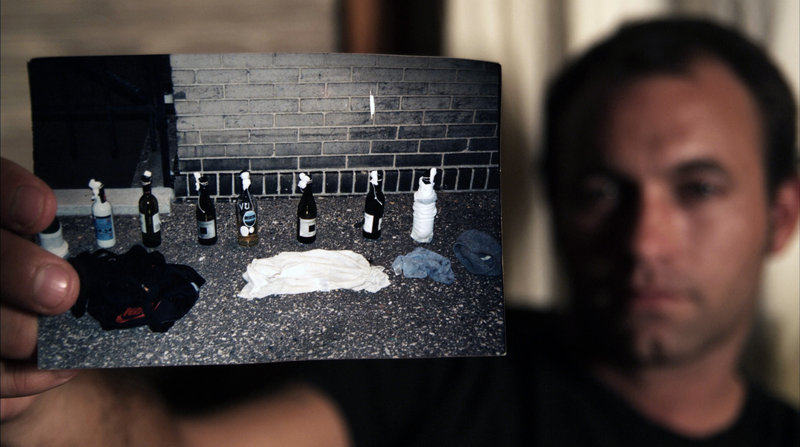Truth is elusive. But it makes for great documentaries.
“Informant,” screening at 7:30 p.m. Tuesday at Space Gallery in Portland ($7; space538.org), is the second documentary in two years about a 2008 incident in which two young men were arrested at the Republican National Convention and charged with making Molotov cocktails — which, it’s alleged, they intended to throw. Or not. At police cars. Or something. It’s that sort of case.
The first documentary, 2011’s “Better This World” by directors Kelly Duane and Katie Galloway, presented a maddeningly fascinating overview that examined the possible motives of the young men and of an older activist, Brandon Darby — who, it turns out, was working as an undercover informant for the FBI the whole time. “Informant,” from director Jamie Meltzer (who will be on hand for a Q&A after the Space screening) focuses exclusively on Darby, whose improbable journey from self-proclaimed left-wing revolutionary to FBI informant (and beyond) is as baffling and compelling as is the film itself.
I’ve watched two documentaries about Darby now and, honestly, I still don’t know what to make of the guy.
The product of a miserable childhood in a polluted Texas refinery town, Darby, as presented in the film, gradually drifted into an activism fueled as much by adolescent anger as by the quest for social justice. He emerged as a high-profile hero to many during Hurricane Katrina, where he defiantly entered flooded New Orleans and helped found the radical assistance program Common Ground Relief.
But according to interviews with former colleagues, he could also be an egomaniacal bully with an exaggerated sense of his own importance and toughness, someone prone to self-aggrandizing, fiery rhetoric. As one colleague states, “There’s a side of Brandon that’s very dramatic and conspiratorial and paranoid.”
Apart from examining the questionable tactics our government uses to spy on American citizens engaged in legal protest movements, “Informant” functions as a gripping character study of one of the slipperiest onscreen figures in recent memory.
Narrating his own story to the camera, Darby gives a version of events that sounds reasonable, even heroic. But as we listen and watch him earnestly participate in dramatic re-enactments, our sympathies run alongside suspicions engendered by this self-serving depiction of his actions.
Darby inadvertently creates a picture of a man with the compulsion to see himself as the hero of any situation, regardless of anyone else’s version of events or the consequences. Would these two young men have done what they had if the FBI hadn’t planted a charismatic alpha male in their midst who challenged their masculinity while regaling them with tales of his own grandiose deeds and plans? (One journalist posits, “Putting a renowned 33-year-old activist in the midst of activists 10 years younger who look up to him and expect him not to be looked at as the leader is ridiculous.”)
It’s that aspect of Darby’s character that leads to a final twist that’s as shocking as it is inevitable. I won’t spoil it here, but seeing this former radical (very slightly) adapt his anti-government message for a new, and theretofore unthinkable, new activist demographic is chilling in what it represents.
For the character, and for activists dedicated to more than themselves.
Send questions/comments to the editors.




Success. Please wait for the page to reload. If the page does not reload within 5 seconds, please refresh the page.
Enter your email and password to access comments.
Hi, to comment on stories you must . This profile is in addition to your subscription and website login.
Already have a commenting profile? .
Invalid username/password.
Please check your email to confirm and complete your registration.
Only subscribers are eligible to post comments. Please subscribe or login first for digital access. Here’s why.
Use the form below to reset your password. When you've submitted your account email, we will send an email with a reset code.